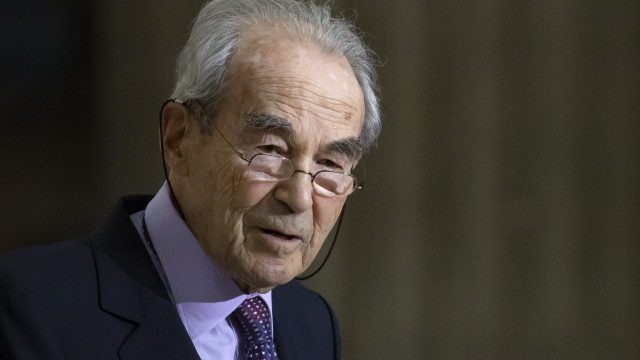Former French justice minister Robert Badinter, who in 1981 ended the death penalty in France, has died at the age of 95, his aide Aude Napoli said.
Badinter, who was also head of France's highest administrative body, the Constitutional Council, died overnight, she added, AFP reported.
"Lawyer, minister of justice and the man who abolished the death penalty, Robert Badinter did not stop pleading for enlightenment. He was the man of the century, a man with a republican conscience and a spirit that was entirely French," President Emmanuel Macron wrote on social media platform X.
Former French justice minister Robert Badinter, who has died aged 95, saved many lives by dedicating his to the fight against the death penalty and played a key role in banning the gruesome guillotine in 1981.
The lawyer, who said he could not reconcile himself to a "murderous judicial system", was widely vilified for pushing through a law to ban the death penalty at a time when most French people still supported the practice.
He later said he had "never felt so alone" in his fight against France's death penalty by beheading by guillotine, a practice dating back to the French Revolution in 1789.
But in later years he was hailed for his integrity and statesmanship. The son of a Jewish fur trader deported to a Nazi concentration camp during World War II, he built a reputation as a lawyer who defended - often successfully - famous cases that his colleagues dared not touch. "We would enter the court through the front door, and after the verdict was read and the defendant was safe, we often had to go out by a hidden staircase," recalled the man dubbed the "murderer's lawyer" by death penalty supporters.
In 1972, his career took a decisive turn when one of his clients, Roger Bontems, was beheaded for his minor role in the murder of a nurse and guard during a prison break.
Badinter is haunted by his failure to win a stay of Bontems' execution in a case that changed his position on the death penalty "from intellectual conviction to militant passion."
Five years later, he helped convince a jury not to execute Patrick Henry for the murder of a seven-year-old boy, immediately becoming a hated figure for many French people who wanted Henry's head.
Badinter turns the case into a death penalty trial, calling in experts who describe the workings of the guillotine in gruesome detail. "Guillotining is nothing less than taking a living person and cutting them in two," he argued. During his career, he saved a total of six people from execution, incurring death threats in the process.
He was born in Paris on March 30, 1928 in the family of a Jewish fur trader who immigrated from Bessarabia, today's Moldova. When he was just 14, his father was among a group of Jews rounded up by the Gestapo in the southeastern city of Lyon and deported to the Sobibor concentration camp in present-day Poland, where they died. The young Badinter developed a strong sense of justice, which led him to graduate law in France, followed by a master's degree at Columbia University in New York, with an emphasis on ethical issues. On his appointment as Minister of Justice in President François Mitterrand's socialist government in June 1981, Badinter made ending the death penalty an immediate priority. The last execution in France took place in 1977, when Hamida Jandoubi, a Tunisian immigrant convicted of torturing and murdering a young woman, was executed. Just four months after taking office, Badinter pushed for the abolition of the death penalty in parliament in a historic speech in which he condemned the "hidden dawn executions" that were a "collective shame" for France. Debunking the myth of the supposed deterrent effect of the death penalty, he argued, "If the fear of death stopped people, we would not have great soldiers or great leaders."
Badinter went on to make history in 1983 when he managed to get Bolivia to extradite Klaus Barbie, former head of the Nazi Gestapo secret police, to France. Known during the German occupation of France as the "Butcher of Lyon", Barbie was tried for crimes against humanity and sentenced to life in prison in a landmark case in which Holocaust victims stood trial for the first time in France.
During his five years as minister, Badinter also abolished a law discriminating against gays on the age of sexual consent and worked to improve conditions in French prisons. A towering figure in French public life, he was president of the Constitutional Council and a member of the French Senate from 1995 to 2011. The death penalty remained the bane of his existence until the end. Badinter vowed to work "until his last breath" to achieve a global ban on the practice, and continued to campaign against executions in China and the US into his later years. /BGNES







